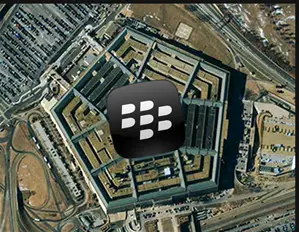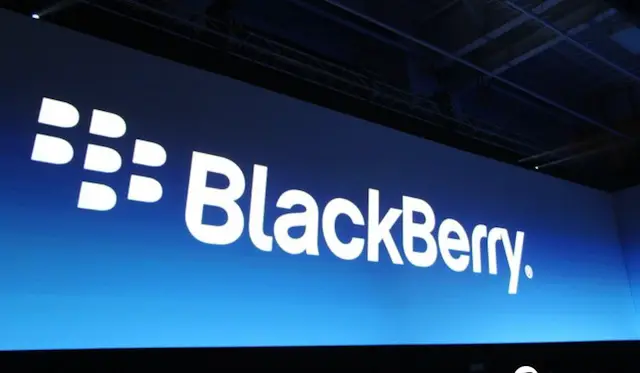
Blackberry stock surges on 80,000 unit “government bailout”, Android still activating 1.5 million daily
It’s no secret that Waterloo-based Blackberry was on their biggest downward spiral ever in 2013. The company, which has conceded tons of market share to the likes of Apple and Google due to lack of innovation, was almost sold off to financial vultures last year. They also had to let go of thousands of employees, and it wasn’t until private investors decided to come in and save their skin that they could step back and regroup to navigate the tough waters that 2014 would bring.
It looks like they’ve finally gotten their first bit of good news, though, as it has been revealed that the Pentagon has tapped Blackberry for 80,000 new handsets for use on a “new network.” That commitment, which sounds like it has the potential to add more handsets over time, will continue a longstanding partnership between Blackberry and various arms of the American government.
The new units will look to be hooked up to the Department of Defense’s management system by the end of this month, according to a statement by the Defense Information Systems Agency.
That bit of good news allowed Blackberry to see stocks rise as high as 8% in both the US and Canada since the announcement was made. While that wasn’t a huge spike in the price (it’s still hovering around $9.93 per share as of the time of this writing), it was the best news Blackberry has enjoyed in a while.
Will “Government Bailout” be enough?
That commitment by the Department of Defense is a testament to Blackberry’s continued focus on enterprise, government and security, areas where Android’s biggest OEM Samsung and their archrival Apple have had a tough time breaking into. Samsung has been working to improve their worth in those spaces with the cleverly-named KNOX security suite (the Department of Defense approved KNOX-equipped phones for use in the middle of last year), but it hasn’t been enough to woo the Pentagon to order 80,000 phones for employee use.
But you have to wonder if this is simply just a nice governmental band-aid on a bigger problem. How long can Blackberry survive on the business of the United States government? How many more of these, for lack of a better term, bailouts can they rely on before they have to find a way to sustain long-term growth?
As big and as important of an entity as the Pentagon is, it’s clear that catering to nothing but high enterprise and government is not going to cut it. There are hundreds million more consumers out there looking to buy iPhones and Android phones above all else, and Blackberry isn’t doing nearly enough to cater to those folks.
Blackberry vs Android and iOS: By the Numbers
To put Blackberry’s new 80,000 unit sale into perspective, we thought it’d be fun to take a look at recent daily activation numbers and sales figures for competing platforms (to make it fair, we included only one of Samsung’s biggest smartphones):
- Android: 1.5 million activations daily
- iOS / iPhone: 9 million iPhone 5S and 5C units on launch weekend alone
- Samsung Galaxy S4: 40 million units in six months (222,000 per day)
Just think about that for a second: Samsung and Apple are activating more phones in one day than the Pentagon will in this rare purchase. For Samsung, that’s not taking into account sales of the highly popular Galaxy Note line. For Apple, we won’t even get started on the 1.4 million units they’re preparing to ship off to China Mobile for the iPhone’s impending launch on the carrier.
Should the Pentagon order any more units, they probably still wouldn’t be able to come close to what their competitors are doing right now. This sale is like a drop in the bucket — nay, a drop in the swimming pool — in comparison.
Finding new ways to do old business
Blackberry obviously has bigger fish to fry than that first-time sale, though. They’ll look to continue making money from BES security services and support that the Pentagon will likely have to subscribe to, but that alone still might not be enough.
That’s probably why Blackberry has found the need to embrace iOS and Android in more ways than one. On the consumer side, the successful launch of Blackberry Messenger on competing platforms (40 million downloads in 60 days between Android and iPhone) says a lot about the state of their business.
On one hand, it puts their foot into the door for selling services on platforms that are doing immensely better than they are. On the other, it helps keep existing consumers tied to their own brand.
Gone are the days where BBM alone is going to sell a handset — it’s a useless tool if all of that person’s friends defect to iOS and Android. It’s a win-win situation for Blackberry in that regard, and it’s the only choice the company had in staying relevant in this fast-changing mobile ecosystem.
And while Android and iOS haven’t done much to threaten Blackberry’s dominance in enterprise, you can tell Blackberry will not take any chances.
Beyond BBM, Blackberry also confirmed that they were working on security solutions and BES support for competing platforms. This would allow them to continue to sell security and support even if their handset business happened to vanish overnight (and would validate suspicions that Blackberry could eventually sell off their OEM business to become a software and services company).
We obviously don’t want to see another competitor drop in this lopsided race, so let’s hope this instance is more than just a one-time confidence booster and a delay to an unfortunate demise.

